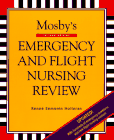How do you prepare yourself to be a competent Flight Nurse?
As a flight nurse, one of the most frequent questions I am asked is "What do you have to do to be a flight nurse?"
Well, that's an easy question but the answer isn't. I'll try to answer it the best I can. Remember, every flight program has it's own minimum experience/knowledge criteria. The prerequisites I am listing here are general standards that, over the years, I have seen best prepare aspiring fight nurses for their positions.
First you need to be an "experienced" nurse. Most programs prefer you have a critical care and/or emergency nursing background. 2 years experience would be minimum, although some programs require less.
Second, decide what type of flying you want to do. There are different types, they are;
Military Flight Nursing:
If you want to be a military flight nurse you can choose to fly as a Reservist (in the Air Force Reserves) or on active duty.
To join the Air Force you need to meet the following criteria (these criteria change from time to time so contact your local A.F. recruiter for the most current information - make sure you tell the recruiter you want to talk to the Health Professions Recruiter.)
- 1. Be a graduate of a nursing school approved by the Surgeon General (generally ANA approval is adequate - a Bachelors degree is required to serve on active duty.)
- 2. Be less than 47 years of age.
- 3. Meet criteria for a Class III Flight Physical
- 4. Meet A.F. Officer commissioning criteria
- 5. Complete Commissioned Officers Training (COT) - "basic training" (2 1/2 weeks training).
- 6. Complete the A.F. Flight Nurse Training program (6 weeks).
NOTE: You have a much better chance of flying in the Reserves. Also, having "Air Force Reserve Flight Nurse" on a resume can help get your feet in the door of a civilian position.
Civilian Flight Nursing:
There are some basic rules for securing a position as a civilian flight nurse:
1. Get Certified!
- Certified Emergency Nurse (CEN)
- Certified Critical Care Nurse (CCRN)
- Paramedic
NOTE: The Certified Flight Registered Nurse (CFRN)and Certified Flight Paramedic (CFP) are not included as prerequisites. Obtaining the CFRN/CFP without having flight experience is a bit like trying to take the CEN without ever having worked in an emergency setting.
2. Get Trained!
- Basic Cardiac Life Support (BCLS)
- Advanced Cardiac Life Support (ACLS)
- Air-Medical Crew National Standard Curriculum
- Any altitude physiology course
- Trauma Nurse Core Course (TNCC)
- Pre-hospital Advanced Life Support (PHTLS)
- Basic Trauma Life Support (BTLS)
- Pediatric Advanced Life Support (PALS)
- Neonatal Resuscitation Course (NRC)
- Critical Incident Stress Management (CISM) (even if you don't join a team)
3. Network!
Join one or more professional air-medical organizations. Attend local chapter and national meetings. Get to know people in the industry.
4. Hang in there!
Turnover for flight nursing positions is probably less than 5% a year. You have to hang in there and persevere. Remember, many teams hire people they know, so if you already work for a hospital that has a team you may have a better chance getting on that team.
Here are two references I strongly recommend for anyone preparing for a career in air-medical transport:
Flight Nursing : Principles and Practice
and/or
Fundamentals of Aerospace Medicine
ORDER THEM NOW!
Return to the The Seaox Air-Medical Home Page.
Last modified on 4 July 2001



![]()
